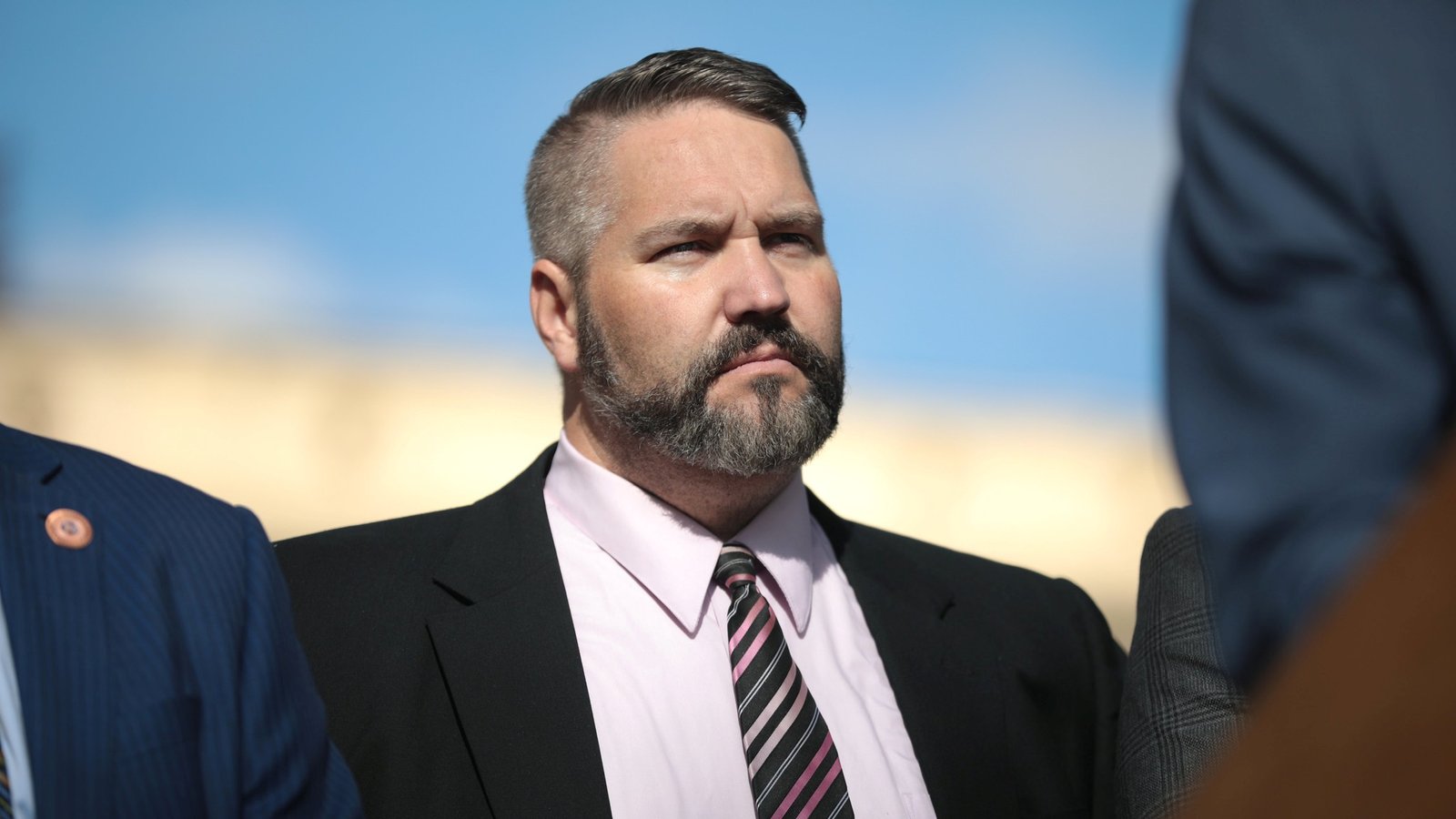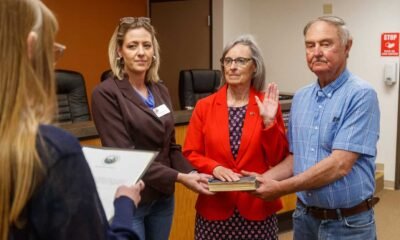2024 election
Maricopa County Elections Set for a Shake-Up with New Leadership

A new contingent of Republican officials is set to lead the high-stakes elections in Maricopa County, marking a significant shift in a region that has faced persistent allegations of voter fraud. This change follows a period where outgoing officials established themselves as staunch defenders of electoral integrity amidst internal party disputes.
Justin Heap, the newly elected recorder and a critic of the county’s election processes, aims to overhaul the current system. Heap, a Republican state representative, won a notable victory against incumbent Recorder Stephen Richer, drawing national attention to his campaign focused on election reform.
Heap has expressed skepticism about the fairness and security of recent elections, labeling the existing system a “laughingstock.” While he seeks substantial reforms, he shares governance responsibilities with a five-member board of supervisors. In discussions with Votebeat, incoming board members hinted at a cautious approach to changes.
The board will see new faces, with Mark Stewart stepping in for current Chairman Jack Sellers. U.S. Rep. Debbie Lesko and former state Sen. Kate Brophy McGee will replace outgoing members Clint Hickman and Bill Gates. The new term commences on January 1.
This transition could fundamentally alter the county’s communicative strategy, which has previously focused on presenting a unified front against misinformation. In contrast to their predecessors, the newly appointed officials are expected to raise inquiries about past electoral practices, necessitating a trust-building process amongst themselves and the community.
Moreover, the incoming leaders aspire to mend the county’s fractured relationship with the state Legislature, which soured following legal conflicts over ballot audits post-2020 elections.
As recorder, Heap will oversee key functions, including voter registration and the verification of mail-in ballots, but the board of supervisors retains authority over in-person voting and ballot processing. Heap acknowledged the public’s desire for change during a recent radio interview, emphasizing the need for expedited election results. However, many aspects of the process are still under the supervisors’ jurisdiction.
Feedback from the new board members reveals a consensus on the goal of streamlining election procedures. Lesko, Brophy McGee, and Stewart have begun familiarizing themselves with the current electoral framework to identify areas of improvement. Some newer members expressed varying levels of confidence in the efficacy of the existing election systems.
Heap has criticized the recent changes made by the outgoing board to their shared services agreement, which delineates election responsibilities between the recorder and the supervisors. He views these amendments as shortsighted and intends to engage with the incoming board to establish a more coherent agreement.
Heap’s history in the Legislature suggests his priorities, including enhanced tracking of ballot handling and tighter voter roll management. His past support for eliminating mail-in and early voting raised concerns among some colleagues about the implications for voter access. He has since asserted that while he does not plan to abruptly eliminate mail voting, improving its security remains a focus.
Despite his campaign rhetoric, Heap has tempered his comments regarding personnel changes within the elections office, stating that retaining the right people is crucial. The coming months will clarify how these new officials implement their reforms and address ongoing concerns about voter confidence and election integrity.


















